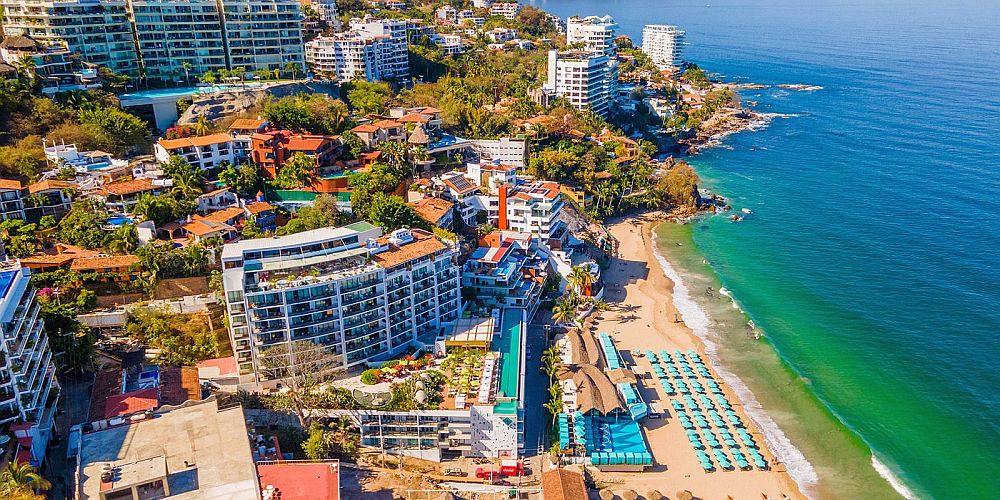
Puerto Vallarta, Mexico – Buying real estate in Mexico is similar to buying in the US. But it’s not the same. There are some significant differences in the process. A few that might surprise you and others that could cause problems without the right team of people. Ultimately, you need to be an informed buyer. And we are here to help… These are the things you need to know before buying property in Mexico.
You can use the MLS in some parts of Mexico
Similar to the US, you’ll have access to the Multiple Listing Service. The MLS is a massive database, actually a suite of regional databases with thousands of homes listed for sale. There is a wealth of data on the MLS, not just the number of bathrooms in a condo. There are often details about the HOA, price, and square footage, property tax, along with photographs.
Access to it is a massive benefit of looking for property in a particular Mexican city. That means you can educate yourself on what is available on the market. Keep in mind, not all part of Mexico will have an MLS, so check with your real estate agent.
Additionally, you’ll be able to monitor it for anything new that catches your eye. Then just let your agent know, and they’ll make an appointment for you to see the property in person.
Your real estate agent will go with you to the appointments, so if you fall in love, they can put in an offer quickly.
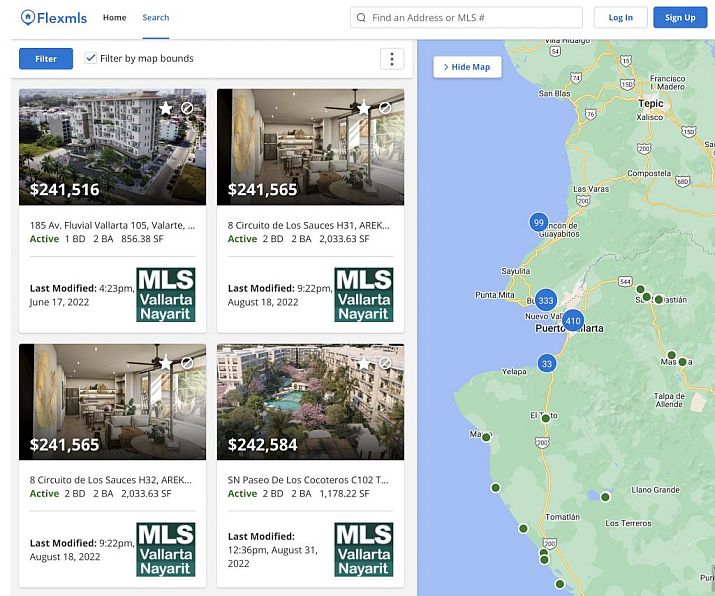
All the documents are in Spanish
It’s Mexico. Everything should be in Spanish. Even if both parties are not Mexican, all legal documents are required to be in Spanish. Depending on where you’re buying, some documents may include a courtesy English translation. You can also ask your real estate representative or someone else to interpret it for you.
AMPI Agent vs. AMPI Broker vs. Realtor
In Mexico, AMPI agents and brokers can be Realtors. A Realtor is a trademark designation for a licensed real estate professional who is a member of the National Association of Realtors (NAR). The Mexican Association of Real Estate Professionals (AMPI) and NAR have had a joint agreement for more than 10 years. AMPI members can become part of NAR’s International Realtor section, with cross marketing programs established for property listings across NAR’s international listings.
In addition, AMPI members are held to a strict code of conduct and ethics.
Once a professional becomes an agent with AMPI status, they can continue their education to become a broker.
Keep in mind that your agent will be your right-hand person in this process. They are the ones with insider knowledge. They are your expert counsel, will walk you through the steps, and recommend other professionals you’ll need to complete the transaction.
Regardless, if you use an agent or a broker, ensure they are a reputable AMPI member and have good references and credentials. If possible, ask for a referral from a friend. Unfortunately, there are bad apples in the bunch, some people call themselves agents, but have no legal training and aren’t members of AMPI. You don’t need a bad apple when trying to buy your dream home.
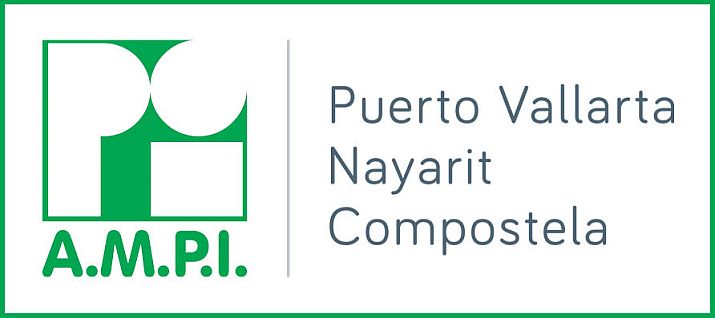
House vs. condo?
There are pros and cons to both.
Some people think buying a house will be more affordable because you don’t have HOA fees. Indeed, you won’t have HOA dues, but you’ll still have other expenses.
You will still have to pay a gardener, pool person, and caretaker or property manager to monitor and take care of your home while you are away. Even if you are a hands-on person, it is essential to have someone looking after your property when you leave. You certainly can’t leave a pool or garden unattended for months on end.
If you have a condo, you can lock it up and leave. But, of course, you will have those monthly HOA fees, and someone needs to open up and air out your place, and make sure there hasn’t been any damage/issues since you left (leaks, mold, etc.). Whether an HOA or a maintenance/caretaker fee, it’s an extra add-on to your budget.
So, when thinking about what type of home to purchase, decide how you plan to use it. And how long you will be gone yearly.
There are restricted zones in Mexico
but you can buy inside them. It’s a common misconception that foreigners can’t purchase property within the restricted zones. These zones are within 62 miles of an international border and 31 miles from the coastline.
However, there is a workaround if you want that beachfront property of your dreams. It’s a trust (or Fideicomiso) with an approved national bank. The trust functions like any other trust. You are the beneficiary of it and can transfer it to a secondary beneficiary in the case of death.
Depending on the bank, the one-time fee for setting up the trust should be around $1,200-$1,600. There is an annual fee of around $500 for the maintenance of the trust.
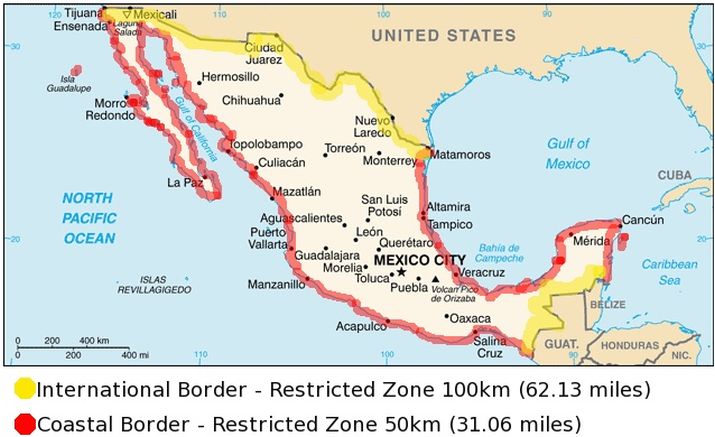
Beachfront or beach view?
People often think that beachfront is the only way to go. And if your budget allows room for that premium, then, by all means, go for it. But something to keep in mind is that it’s not just the purchase price that comes at a premium.
When living directly at the beach, your building insurance and HOA will likely be higher than if you lived five miles away. Living so close to the ocean adds extra wear and tear to everything—the façade, pool, BBQ, furniture, and car. All of it. That salty air you love so much doesn’t love your things. You’ll need a new BBQ sooner than you think.
Also, at night, the beachfront view is typically vast darkness. It isn’t nearly as lovely as a view with a few city lights and the ocean. So, don’t shut down the idea of a condo a few blocks from the beach. Keep an open mind.
Will you use it as a rental?
If you plan to rent out your home while you aren’t there, it is essential to consider an area with a solid rental market. Places like Playa del Carmen, Puerto Vallarta and San Miguel de Allende have booming rental markets and tourism year-round.
If renting is part of your budgeting plan, then considering a condo with a favorable rental history and superb location is worthwhile. Then you won’t have to worry about marketing your place and finding renters. The location of the building can sell itself.
Old world charm vs. modern high rise
You may think you want an old building with all the charm that drew you to Mexico in the first place. Those gorgeous old tiles, the terra cotta floors, all those charming details that modern homes don’t have. It’s understandable. But keep in mind that those old-world charms are just that, old. And older buildings may not have the amenities you need or will need. Like a pool, a fitness center, and most importantly, an elevator.
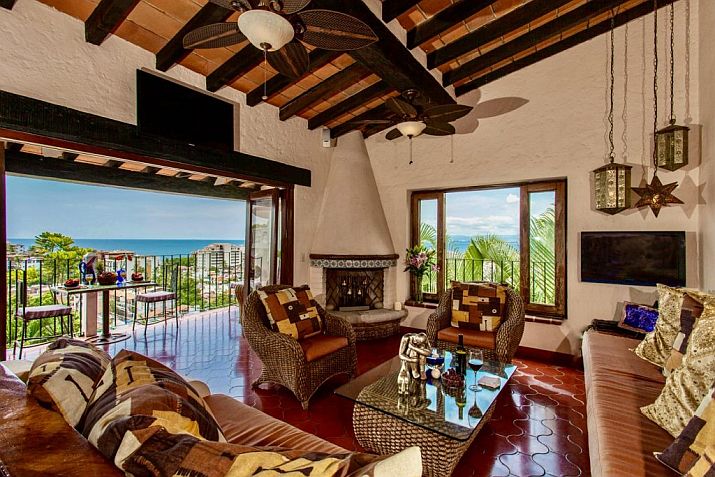
You may not care about an elevator now, but you might in a decade when walking up four flights of stairs with groceries is no longer charming. Or when some of your renters stop renting because they need an elevator.
Not to mention that older buildings have older things, and sometimes those older things stop working or break.
If you decide to go with an older building, do your due diligence and make sure your unit and the building are well maintained. Get an inspection and look it over with a fine-tooth comb. In fact, that is a good idea no matter what you are buying!
You’ll need a Notary
In Mexico, a Notary is an experienced lawyer that has fulfilled a rigorous process and is appointed by the governor of that state.
The legal acquisition of property in Mexico must be administered through a Notary Public. Basically, they ensure that the entire transaction is done lawfully. In addition, they will draw up (or review) and process the closing documents and make sure the property transfers to you legally and correctly.
Usually, your real estate professional will suggest one, but you can do your own research and choose someone as well.
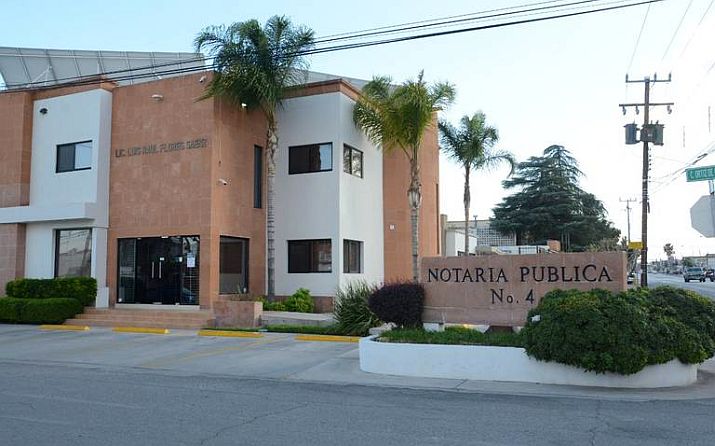
The buyer pays the closing costs
Don’t worry. The seller has their share of costs to bear. Buyer closing costs are usually between 4% and 6% of the purchase price.
The Notary will provide an estimate of the costs, so you will know them before you close. No one needs a shock at the closing table. Included in the estimate will be the Notary’s fees. There are some itemized expenses in the buyer closing costs that can be deducted from capital gains tax when selling the property, lowering the buyer closing costs at the time of sale.
Speaking of closing costs, many real estate companies use a closing coordinator (real estate attorney/law firm) to assist with the process and ensure all the bases are covered.
The wrap-up
There is a lot to think about when purchasing a property, especially in a foreign country. If you have any questions or concerns about buying real estate in Puerto Vallarta, contact Taniel Chemsian at taniel(at)timothyrealestategroup.com.
Taniel Chemsian is one of the top real estate agents in Puerto Vallarta, Mexico. He moved to Puerto Vallarta from Los Angeles in 2003, became a real estate agent in 2006 and has never looked back. He has sold hundreds of homes in the region over the last 16 years, and is often seen on House Hunters International (HGTV).






